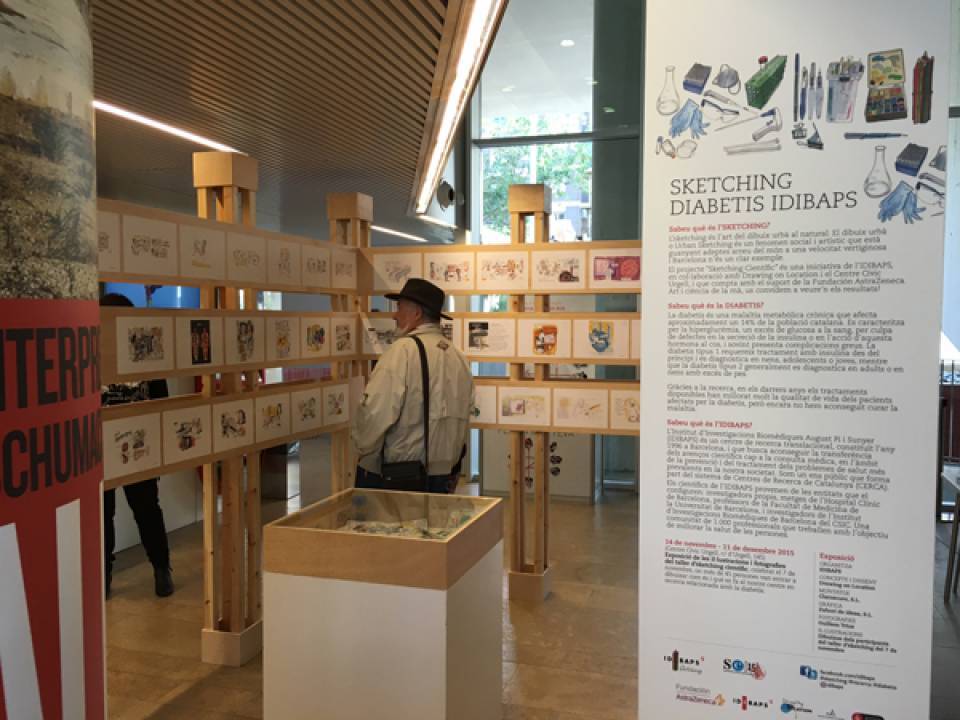First, Serafín Murillo, diabetic nutritionist specialist and researcher at the IDIBAPS team Pathogenesis and Prevention of Diabetes, and Pastora Martínez, manager of IDIBAPS, explained to the audience the lines of research developed at IDIBAPS in the field of diabetes.
Then two participatory workshops, about cooking and exercise, were performed. A personal trainer from the Activa Diabetes Institute taught how to practice healthy exercise without leaving home. In the cooking workshop, cooks from Alicia Foundation explained about the research in the cooking for diabetes, activity within the joint project "Diabetes on demand". They also explained how to prepare quickly and healthy meals.
The same morning, at the hall of the Centre Cívic Urgell, the Sketching Diabetes IDIBAPS exhibition was opened with the drawings made on a sketching workshop held at IDIBAPS on 7 November.
On that special day on November 7, 45 talented people for drawing and curiosity for science participated. They were accompanied by seven researchers who explained the research carried out in this field at IDIBAPS. Three professional sketchers accompanied and advise them to capture the concepts and images in their notebooks.
The workshop was focused on six research lines: the epigenetic or environmental impact on diabetes risk genes; cellular reprogramming to obtain beta cells (insulin producers) for transplantation; the development of vaccines for the prevention of disease; how to protect cells from environmental aggression; how the inflammation cell injures arteries endothelium and causes vascular complications in diabetes; and how to improve our lifestyle to prevent and control the disease.
This workshop, the exhibition opened on November 14 and the resulting book – to be published in early 2016-, have the support of the AstraZeneca Foundation, within the activities of the AstraZeneca Innovation Chair in Diabetes at IDIBAPS. The Sketching Diabetes IDIBAPS exhibition will be open until Friday 11 December.
Other activities on Diabetes
IDIBAPS has recently hosted the IV Course of the AstraZeneca Chair about innovation in research on nutrition and diabetes and addressed to endocrinologists and primary care physicians. New ways of applying nutrition in disease prevention were discussed and the varieties of vegetables, grains, tubers and fruits that can become new nutritional alternatives were analyzed, as well as cooking procedures that allow new approaches.

